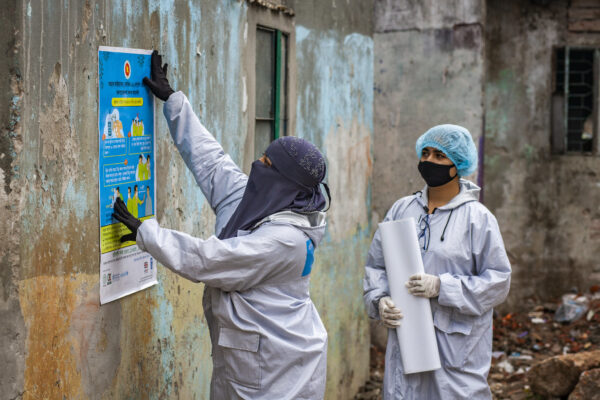
Guillaume Fournié
Veterinarian and epidemiologist
Royal Veterinary College
View this page in:
VietnameseEpidemix is an open-access tool assisting policymakers and others considering disease control and helping them better understand how dynamic disease models can be used to explore how disease spreads in populations.
Dynamic disease modelling is increasingly recognised as an essential tool in the fight against infectious diseases. It allows researchers to explore the highly complex inter-relationships between the many factors behind disease emergence and spread. Disentangling this complexity such that the most important cause-effect relationships can be identified is a challenge, as is determining the best intervention or combinations of interventions in any given disease scenario.
Recent disease outbreaks, not least the COVID-19 pandemic, have demonstrated the value of dynamic modelling when deciding between different interventions, for example vaccination programmes, lockdowns and social distancing measures. In fact, dynamic models are now routinely applied in the context of most infectious disease outbreaks, including with diseases that can be transmitted from animals to people (zoonoses). In the UK they have been used to inform control in cattle of BSE (bovine spongiform encephalopathy), bovine tuberculosis and foot-andmouth disease.
Policymakers and others need to understand what dynamic models are useful for, and their strengths and weaknesses, to benefit from them. An open-source web-based app, Epidemix, is now helping policymakers and others gain an understanding about:
The app uses mathematical equations to express the complex relationships behind disease spread. It was developed by a team of veterinary epidemiologists: Professor Dirk Pfeiffer, Deputy Director of the One Health Poultry Hub, Dr Guillaume Fournié, co- Investigator in the Hub, and Dr Petra Muellner of EPI-interactive, with support from EPI- interactive’s team of software engineers and data visualisation experts.
Professor Andres Perez, global veterinary public health training expert
While initially launched in 2017 with several generic disease models, the app was recently extended to include disease-specific models such as one for African swine fever (ASF). The global spread of ASF has had significant global economic and social impact. At the beginning of the COVID-19 pandemic in 2020, a COVID model was incorporated into the app. In 2021, avian influenza models informed by research in the One Health Poultry Hub were added.
Since launch, Epidemix has been accessed by users from more than 140 countries, with more than 5,000 unique users accessing the app in 2021 alone.
Professor Andres Perez, Director of the Center for Animal Health and Food Safety at the University of Minnesota, said: “In our role as a World Organisation for Animal Health (OIE) collaborating centre for capacity building, we provide training to veterinary services worldwide on what the OIE refers to as advanced competencies for veterinary public authorities.
“For example, we are providing training to the Vietnamese Government (Department of Animal Health), and we are using Epidemix for educational purposes to demonstrate the role of models, explain the principles of modelling, its potential use, the interpretation of results and more. Epidemix has been a fantastic tool helping us communicate key concepts of modelling to policymakers.”
Professor Guillaume Fournie, app co-developer
It is critical that those involved in infectious disease management, including policymakers, have a good and nuanced understanding of dynamic disease modelling – including the assumptions that lie beneath a particular model and even the limitations of models. Epidemix provides this.
Dr Fournié said: “In being trained with Epidemix, people working in these agencies may be more likely to use model outputs to inform policies, and improve the communication at the science-policy interface and therefore the relevance and usefulness of the developed model. Without the Hub’s capacity-building remit and determination to work at the science-policy interface, the further development of this app would not have been possible as we entered the COVID era.”
FInd out more about EPI-interactive
Epidemix was jointly funded by City University of Hong Kong and Royal Veterinary College, UK, with in-kind support from EPI-interactive, under the company’s good cause programme.

Veterinarian and epidemiologist
Royal Veterinary College